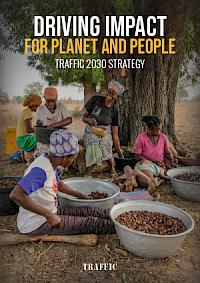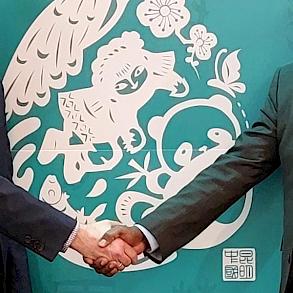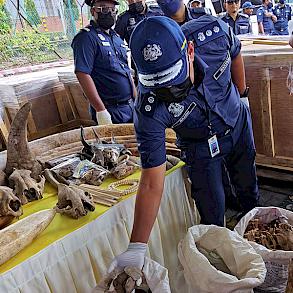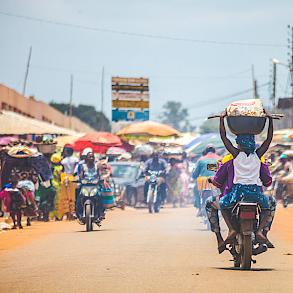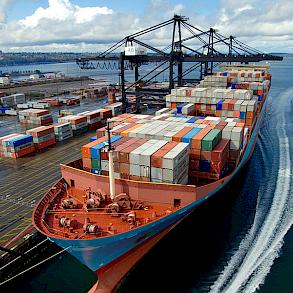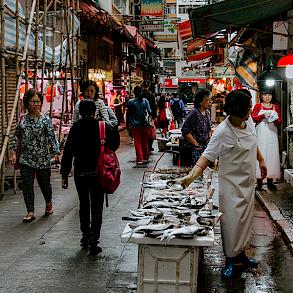
Shea butter production process near Chiana, Kassena-Nankana West District, Ghana. Photo: Axel Fassio / CIFOR
i
How we organise our work to drive results
At a time of unprecedented biodiversity loss, TRAFFIC is scaling up evidence, solutions, and influence to ensure that trade in wild species is legal and sustainable, for the benefit of the planet and people.
Five strategic priorities to achieve our mission and goals
Our strategy is built on a clear results hierarchy
Strengthening How TRAFFIC Works
As we scale up action in the five priority areas, we will adjust how we work in response to emerging issues and lessons learned from our previous programme strategy:
Doing fewer things but doing them bigger and better
Rigorously prioritising actions that contribute to the 2030 goals
Sharpening our global leadership in data collection, use, and access
Leveraging innovation and technology for impact
Stronger focus of gender and rights-based approaches
Selectively broadening our core partnerships

Deepening social impact
We are deepening our focus on reducing gender inequalities and marginalisation of groups engaged in wild species supply chains.
This will include scaling up support for rights-based approaches and inclusive multi-stakeholder processes that ensure the full, equitable, and effective representation and participation of diverse rights-holders in decision making, implementation, and monitoring.
Our work will be supported by a strong internal social and environmental safeguards framework, which draws on the principles set out in the Conservation Initiative on Human Rights championed by our founders IUCN and WWF.
This framework emphasises respect for and promotion of human rights, particularly in our support to governments and communities to combat illegal wild species trade; identification and addressing of any potentially adverse human rights impacts in our work; promotion of good governance, both for governments and corporates; and support for rights holders.
Internally, we will continue to nurture a strong culture of diversity, equity, and inclusion – and ensure that the composition of our staff and leadership reflect the broad diversity of the stakeholders we work with.
Moving from evidence to influence
TRAFFIC is not an advocacy or campaigning organisation – we focus on evidence. We combine research and analysis to produce guidance on a wide range of wildlife trade issues, engaging through targeted communications, tools and training.
1 research
- Market monitoring
- Legislative reviews
- Behavioural insights
- Investigations
2 analysis
- Data mapping
- Information systems
- Applying context
- Academic insights
3 Guidance
- Early warning
- Threat assessments
- Setting standards
- Regulatory design
4 engagement
- Enforcement support
- Policy advice
- Communications
- Training

